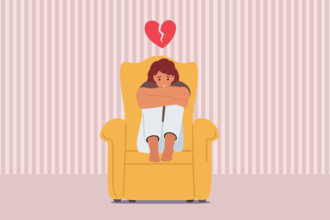Menstruation can bring all sorts of ups and downs, aches and pains, questions, and concerns. Pregnancy and birth (if you happen to experience them) can be some of the most transformative periods a person can go through, not to mention the changes they cause to your body.
Then at the end of the reproductive road, we have menopause. Menopause is when a woman goes 12 months without having a period. Embarking on this new journey also comes with plenty of queries – which is why we’re here to answer some of the most common questions about menopause.
Q: What causes menopause?
The exact cause of menopause is not fully understood, but this natural biological process is caused by a decline in the production of hormones, mainly estrogen, and progesterone.
While everyone who menstruates goes through menopause at some point in their life, some experience it earlier than others. In some cases, menopause can be triggered by surgery, like a hysterectomy (removal of the uterus) or by surgical removal of the ovaries.
There are certain underlying conditions and lifestyle factors that can make menopause start earlier like smoking cigarettes, having type 1 diabetes, undergoing chemotherapy, and having a family history of early menopause.
Q: What are the most common symptoms of menopause?
Some people experience no symptoms with menopause, or their symptoms don’t bother them. Many find it a relief, especially if they dealt with painful periods.
For those that do experience menopausal symptoms, these are some of the most common:
- Hot flashes
- Irritability and moodiness
- Depression
- Difficulty sleeping or insomnia
- Vaginal dryness
- Lower libido
- Changes in periods or irregular periods
- Pain during sex
Q: How do I deal with the symptoms of menopause?
For those that do find symptoms of menopause uncomfortable, there are steps you can take to help deal with them. One of the most common ways to deal with symptoms of menopause is through hormone replacement therapy, HRT, usually with estrogen, but sometimes with progesterone as well. Certain antidepressants, SSRIs, can also help in some cases.
HRT will not start your period again, but it can help you deal with the symptoms that can come with menopause. People who don’t want to go the hormone route can try natural hacks like getting acupuncture, exercising, and trying to stay on a regular sleep schedule.
Q: How do I know if HRT for menopause is right for me?
While hormone replacement therapy can be incredibly beneficial for many people during menopause, it’s not for everyone. Your decision about whether or not to use hormones depends on the severity of your symptoms, your risk for heart disease and breast cancer, how long you may need HRT, and whether or not the potential benefits outweigh the risk.
If you’re curious about HRT, be sure to speak with your healthcare provider who can help you make a more informed decision.
Q: How do I know when I’ve reached menopause?
The phases of menopause can be confusing. Menopause is marked 12 months after your last menstrual period, before that you’re in perimenopause. After 12 months you are considered postmenopausal.
Perimenopause on average lasts 7 years, but for some can be as many as 14 years, typically starting between ages 45 and 55.
Q: What exactly is a hot flash?
Hot flashes may feel slightly different for everyone, but most people describe them as a short sensation of heat through the body. Some people also experience flushing and sweating followed by chills.
The intensity and frequency of hot flashes change from person to person. Most of the time hot flashes stop after someone reaches menopause, but some people continue to experience them throughout the rest of their life, although they usually lessen in severity.
Q: Can you get pregnant after menopause?
After 12 months without periods, it’s very rare that someone would get pregnant naturally but it is possible. It’s also possible to get pregnant during perimenopause, especially since it can be difficult to know when you’re ovulating when your periods are irregular.
People who have reached menopause can still carry a baby through IVF. Although their eggs are no longer viable, they can use eggs that were frozen at a younger age or donor eggs.
Q: How does menopause affect your sex life?
A good chunk of people who are menopausal also note a decline in their libido. Menopause can also make sex more difficult thanks to vaginal dryness and painful intercourse for some people.
Don’t let this discourage you. Many people still have incredible sex lives after menopause, with or without hormones. Using lube is a great way to help make sex more enjoyable. Remember, although you probably won’t get pregnant, you still need to take steps to prevent the transmission of STIs.
Q: How does the body change after menopause?
Besides the obvious, there are a lot of other changes that happen to the body during and after menopause. Much of this is thanks to hormonal changes.
Here are some of the ways the body changes with menopause:
- Metabolism changes, which means that the way that the body uses energy changes.
- You may gain weight more easily.
- A decline in bone health and an increased risk for osteoporosis
- An increased risk of cardiovascular disease, as well as strokes and heart attacks.
- Mental health issues like depression and anxiety.
Life After Menopause
Whether you’re just starting your menopause journey or have made it through to the other side, everybody has their own unique experience. It’s totally normal to not experience symptoms, but if you do, there is support available to you.
For any more questions you have, you can refer to your healthcare provider. It’s still important to go to regular gynecology appointments for pap smears and mammograms. Welcome to club menopause!









